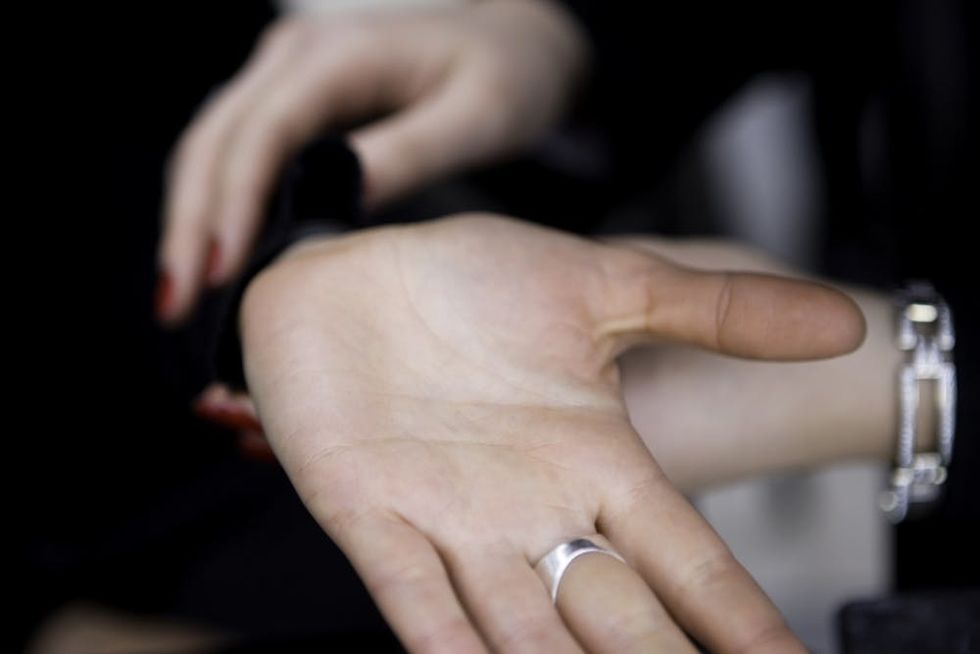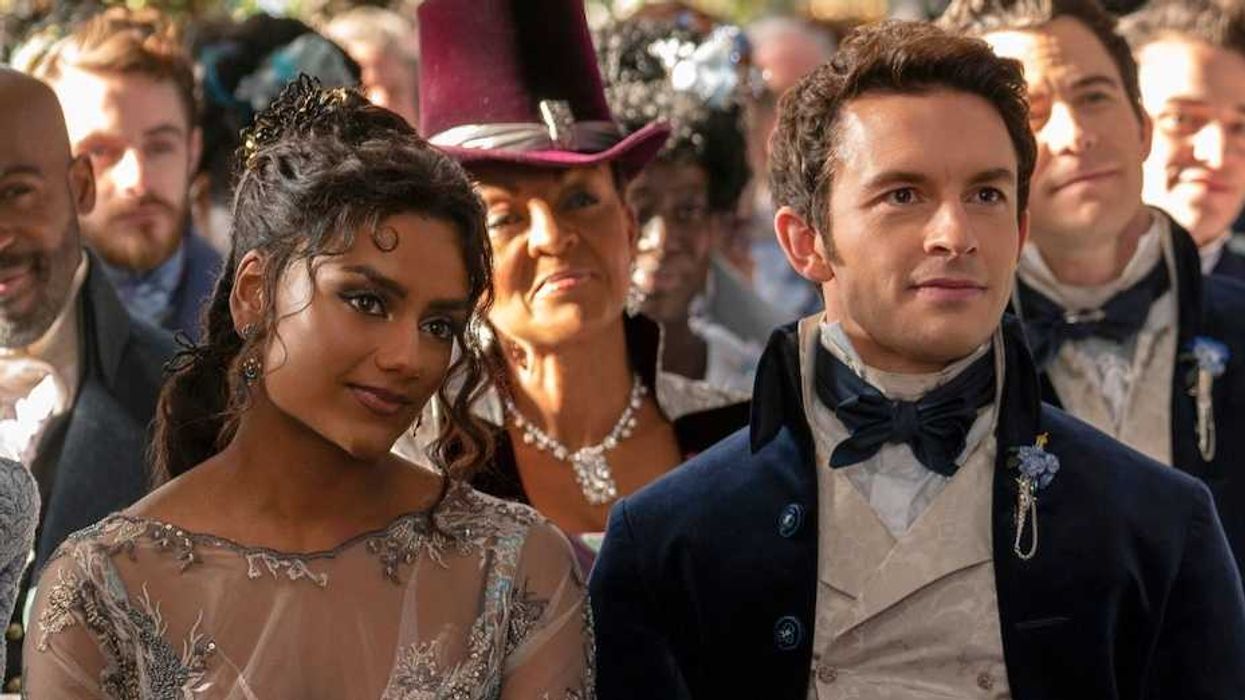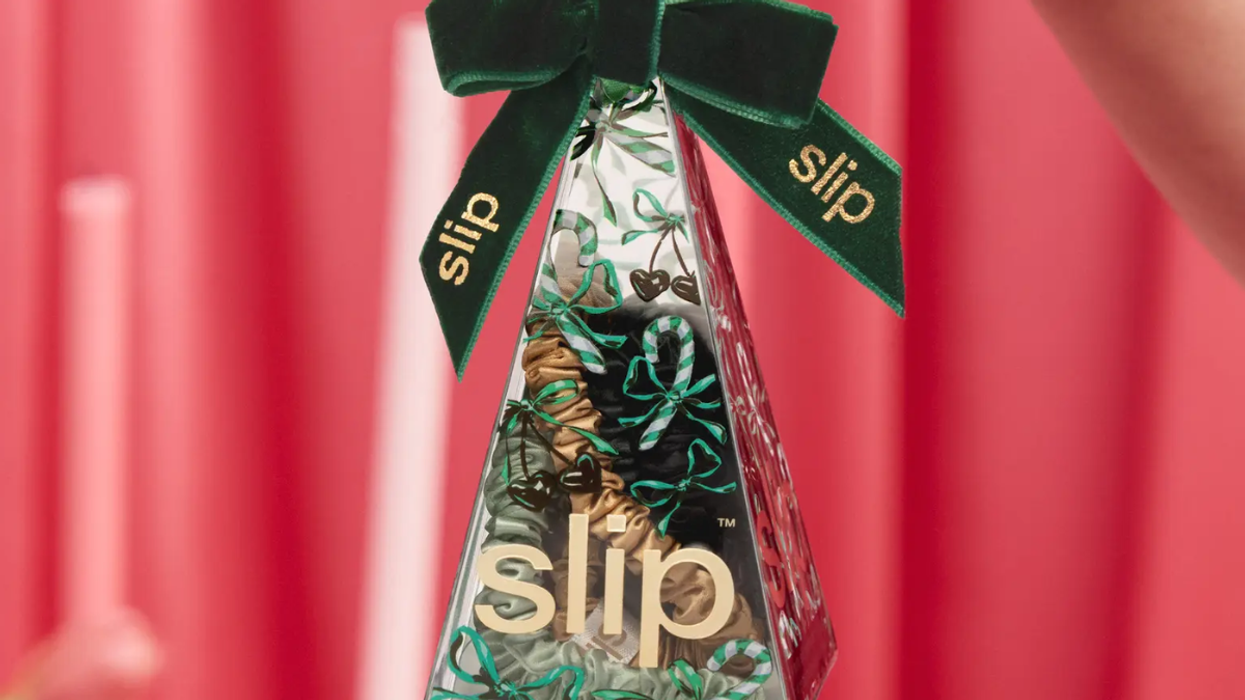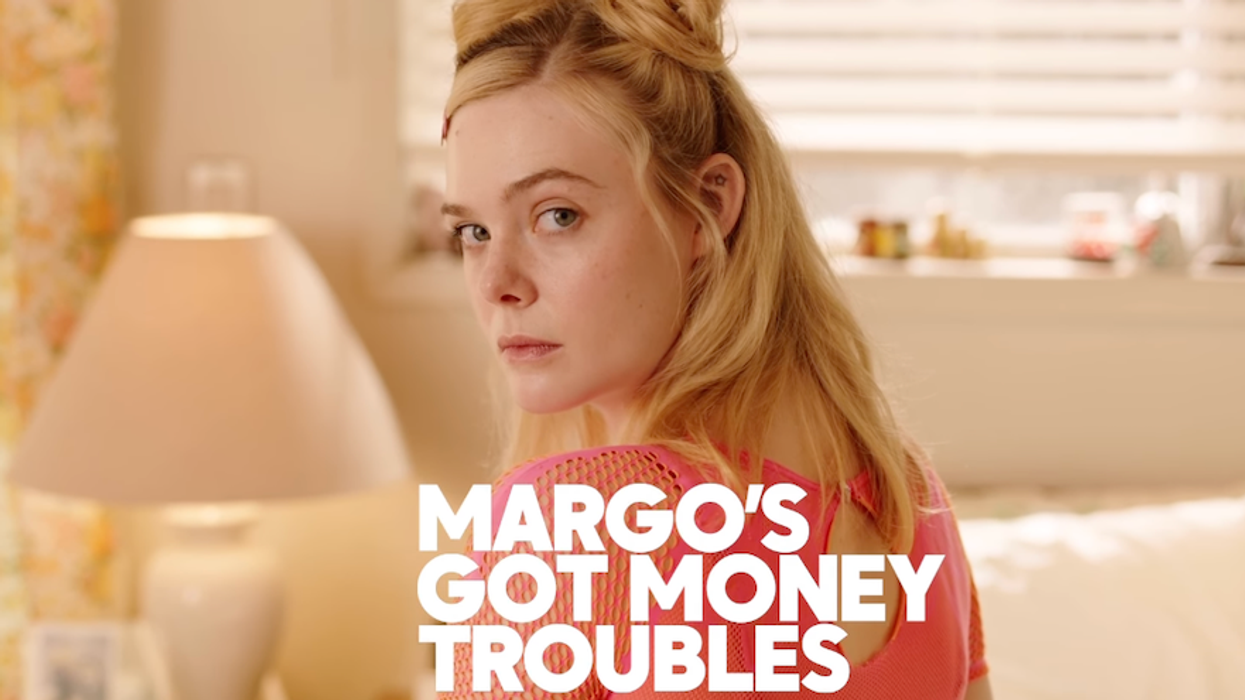Don’t get duped.
How to Get the Most Out of a Palm Reading

There’s a reason palm reading has survived for centuries. A good reading can leave you with a better understanding of yourself and clarity on where you’re going. Unlike fortune tellers, psychics, and mediums, palmists rely on physical clues from the body. Anybody can learn to read palms, but it takes a special, highly trained someone to do it right, since there are thousands of minute features and connections in the hands that take years to master. Not only is it important to find the right person, but you should also be in the frame of mind to get the most from your session. Arizona-based palmist Peggie Arvidson — who works with clients in person and virtually by phone and email — shares her no-BS tips for a life-changing reading.

1. Find the right person. Like in many unregulated industries, you’ll come across scammers, but there are also a ton of people who take the work seriously. They spend decades learning the craft and developing their empathetic muscles. Most serious palm readers will have schooling, but diplomas can be faked, so you should do some vetting by asking questions about the practice and how it works. If someone tells you they use a secret method or are dismissive of your hesitations, run. “They should be able to show they have a real understanding of the data related to the hands,” Arvidson confirms. A serious palmist will also not over-promise. “Many people ask if I can tell if their ex will come back, and the answer is ‘NO,’” she emphasizes. “The ex has free will, and they are not in front of me.” Chances are, you’re in good hands if the person doesn’t claim to predict your future, solve all your problems, or discover a curse (which, of course, they can lift for the low, low price of…). “There are no curses in your hands,” Arvidson says. “Don’t let someone scare you to separate you from your money.” Always trust your gut, she adds: “If you feel it’s hinky; don’t proceed.”
2. Prepare questions. “The worst thing we hear is, ‘Tell me whatever you see,'” shares Arvidson. “It’s like saying, ‘Tell me what’s in the ocean’.’” Instead, it’s best to focus on a few important things. You may not know what could be revealed in your hands, so start by thinking about why you’re seeking counsel in the first place. Make a list of the areas in your life that feel unclear. The palmist may not be able to answer the exact question (“Will my ex come back?”), but they will be able to provide useful information that will serve you better in the long run (like why you gravitate toward a certain type of partner or the behaviors that negatively impact your relationships). Skip questions related to timing (when something will happen). “Things change rapidly, and time is a hard thing to read in the hands,” Arvidson explains. You have free will, so any given action can alter the timeline. “When people ask me, ‘Will I?’ or, ‘Should I?’ I help them work through the easiest way to get where they want to go.” Avoid health-related questions. “You might be able to get ideas for feeling more grounded or physically present, but when it comes to health issues, leave that to your doctor.” Don’t ask about other people, either. Instead, ask how you are influencing outcomes or what you are intended to learn from a situation. Basically, anything predictive isn’t beneficial. The hands provide a roadmap to your inner psyche, so the best questions are ones that help you understand yourself and your options.

3. Set realistic expectations. Let’s be clear: A palmist cannot tell you when you’re going to land your dream job or if someone is the love of your life. They won’t give you pixie dust to heal your heartbreak. If you’re expecting to “fix” all your problems in a session, you’re going to be disappointed. “I see my role as a truth-teller and empowerment expert,” Arvidson says. “Most palmists are not predictive. We use the hands as tools for tapping information to help our clients. Your hands can tell you the easiest way to ‘do you,’ rather than fighting or ignoring your natural abilities and talents.” Think of a palmist more like a life coach who reveals the real and best version of yourself.
4. Get your mind (and body) right. During a reading, you may touch on uncomfortable topics, such as habits and qualities that are sabotaging you. Hearing that it is you, not them, can be a tough pill to swallow. But it’s also the best way to take control of your life. Before you start, you should be in a relaxed and open state. Arvidson advises against running to a palmist when you’re on the brink of a breakdown — you’ll just be looking for information to validate your point or desperate for answers the palmist may not be able to deliver. And don’t try to lighten up before a reading by taking meds or drinking. The idea is to be clear of toxins or other mental blocks. Work your frustrations out with a therapist or friend, then schedule your reading when you are ready to understand what’s going on and how to leverage what you have working for you to move forward. Arvidson tells her clients to drink lots of water before, during, and after a reading: “It gets rid of toxins and junk.”
5. Be an “A” student. Approach your reading like a student of life. Take notes during the session or record it to play back later. This can help you see things you missed the first time around. Many of Arvidson’s clients prefer phone sessions (you just email a photo of your palm, and sometimes prints). With a virtual reading, you can situate yourself in the space you feel safest and most comfortable, which will make it easier to process the information. Don’t be afraid to ask questions if something is unclear or to shift the conversation. “Palmists who are great at what they do are open to co-creative sessions, in which there is an open dialogue. However,” Arvidson cautions, “don’t confuse this with someone who is fishing for information to feed back to you.”
6. Put your learnings into practice. “The real work begins after the reading is over,” Arvidson encourages. Many people go to a reader thinking they will get a magic-bullet cure, but what a good palmist does is walk you through the big question marks in your life, reveal blind spots, and shed light on untapped potential. “You’ll have a great deal to think about after the session. I squarely put the onus of responsibility on my client to make different choices and show how the hands can help.”
Have you had your palm read? Tell us about your experience @BritandCo!
(Photos via Getty)


















